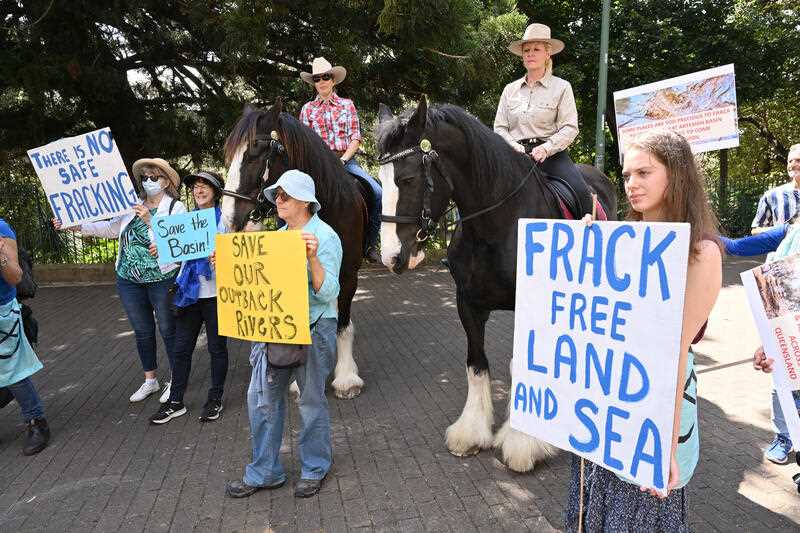A new expert report released today by Lock the Gate Alliance exposes how big gas projects are exploiting failings in federal laws designed to protect one of Australia’s most precious resources – water.
But the report, Reform of the EPBC Act Water Trigger, written by hydrologist Professor Matthew Currell of Griffith University and environmental advocacy Earth & Every, also shows how these laws could be fixed and Australia’s water protected if a few logical steps are taken.
One of the big issues identified is that scientists on the Independent Expert Scientific Committee on Coal Seam Gas and Large Coal Mining Development (IESC), who are tasked with providing advice to the government on big gas projects, don’t have the tools they need to make truly informed and independent recommendations.
The authors argue the Federal Government needs to empower the IESC so it can obtain independent information, instead of relying on gas company-supplied data, and that the scientists should be given the opportunity to twice review a company’s proposal – when it is first submitted, and again after the company has responded to feedback.
The report also highlights that the cultural connections Traditional Owners have with water sites are not properly considered when gas projects are being assessed. The authors say these cultural considerations should be included in the assessment process.
As well, the report includes several case studies of coal seam gas projects in Queensland and NSW, and shows how the ability for the Environment Minister to ignore or overlook advice provided by the scientific committee harms Australia’s water.
One of the case studies explains how, when the government was assessing Santos’ Narrabri Gas Project, the IESC found Santos failed to provide sufficient information concerning risks to underground water tables and groundwater dependent ecosystems.
The report notes, “Had the IESC had the resources and powers to require the completion of key studies to address the above issues (and others) during the assessment process, this would likely have had a material bearing on the approval outcome and subsequent management of the project’s impacts.”
Report author Professor Currell said, “The impacts of gas and coal projects on Australia’s precious water sources are often unclear when they are assessed by the government, due to a lack of information provided by resource companies.
“We have a golden opportunity to address this and make sure the best possible science informs government decisions about what activities are permitted, and how water resources can be protected for future generations,” he said.
Lock the Gate Alliance National Coordinator Ellen Roberts said, “The extension of the water trigger was a really welcome move from the Albanese Government. But as this report shows, Australia’s water laws remain ill-equipped to properly assess big polluting unconventional gas proposals.
“This report shows there is a need for the Federal Government to better recognise and protect Traditional Owners’ cultural connections to water when they are threatened by unconventional gas projects,” Ms Roberts said.
“It shows there is a need for the Federal Government to better resource the independent expert scientists who are charged with offering advice to the environment minister about the impacts of large gas projects when they are proposed.
“This report provides solid recommendations that, if implemented, would put in place the bare minimum safeguards for one of Australia’s most precious resources – water – when it is threatened by unconventional gas projects.”



